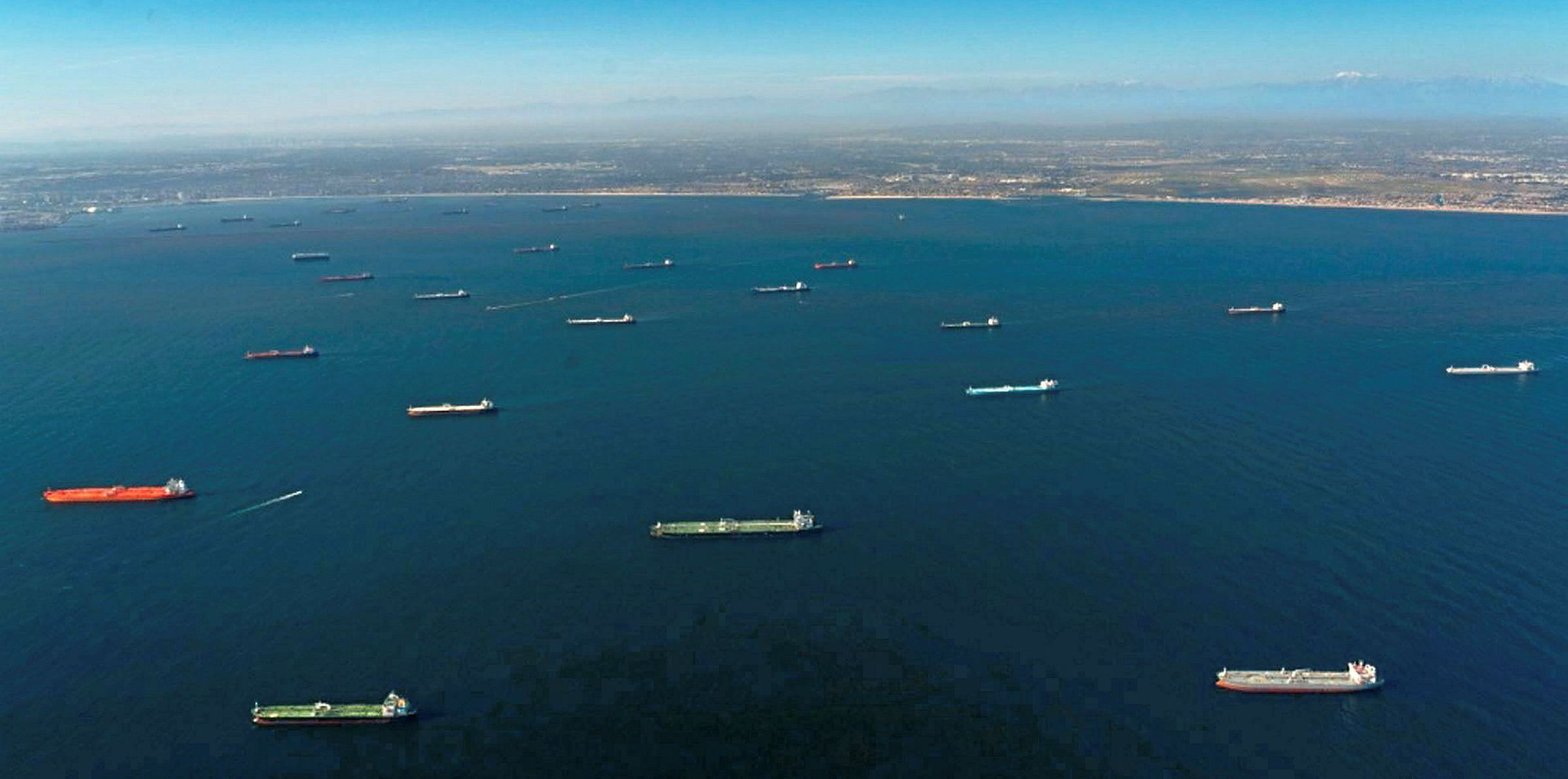Emissions of pollutants from tankers used as floating storage can pose threats to Covid-19 patients on the US West Coast and worsen global warming, research suggests.
Citing findings of Harvard University and University College London (UCL), National Geographic pointed out the tanker fleet deployed close to shore would emit carbon dioxide, nitrogen and sulphur pollutants, and fine particulate matter (PM2.5).
“These emissions could ultimately affect the long-term health of coastal communities – many of them already at risk and underserved – and they added tonnes of climate-warming CO2 to the atmosphere,” a National Geographic article said.
Scientists have long concluded that vessels emit large amounts of pollutants in operation, but their effects on human health are diluted as ships spend most of their time in high seas.
However, due to the oil demand collapsed triggered by the coronavirus pandemic, the amount of tankers used as floating storage – which are anchored closed to coastal areas – have reached a historically high level.
The UCL research by Tristan Smith and Camilo Velandia Perico assessed the four chemical tankers with 48,400 dwt and 20 oil tankers totalling 663,000 dwt off Los Angeles and Long Beach in the week to 29 April.
The fleet of 24 laden vessels was estimated to have emitted nearly 600 tonnes of CO2, six tonnes of NOx, 0.26 tonnes of SOx, and 0.13 tonnes of PM2.5 per day, according to the study, which referenced to emission data used in the Third IMO Greenhouse Gas Study.
“We looked up the ship’s identity, its specifications and then mapped that onto data for the emissions that can be expected for that type of ship, when at anchor,” said Smith, a reader in energy and shipping with the UCL Energy Institute and the study's lead author.
“The findings are LA specific. There are of course many other locations that had floating storage ’surges’ during this time, but their numbers would be specific to the number of ships, the specifications of those ships etc.”
As the UCL study did not assess the pollutants’ health effects, the National Geographic article also pointed to separate Harvard findings on how exposure to air pollution relates to the Covid-19 mortality in the US.
Led by Xiao Wu and Rachel Nethery, the Harvard study concluded that an increase of one microgram of PM2.5 per cubic metre of air is associated with an 8% increase in the Covid-19 death rate.
“Our results underscore the importance of continuing to enforce existing air pollution regulations to protect human health both during and after the Covid-19 crisis,” the Harvard researchers said.
National Geographic cautioned that further studies are required to better assesses the health impact of floating storage, as rain, wind patterns and other chemical factors can all influence how the pollutants enter people’s lungs.
However, it suggested the scientific findings already “see a stark message at play” from floating storage as the pandemic continues to rampage through the US West Coast.







